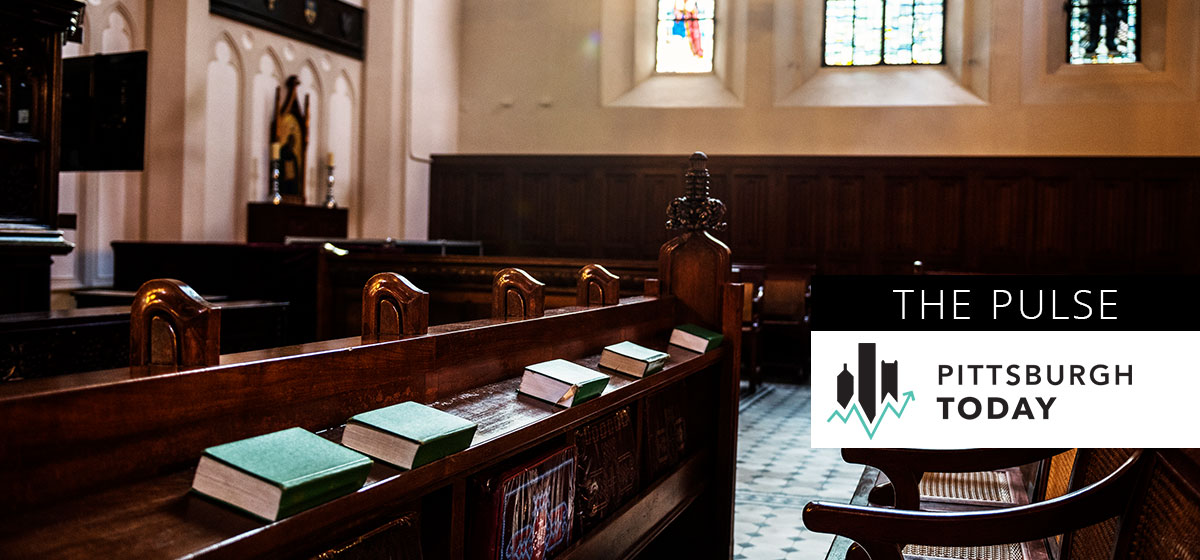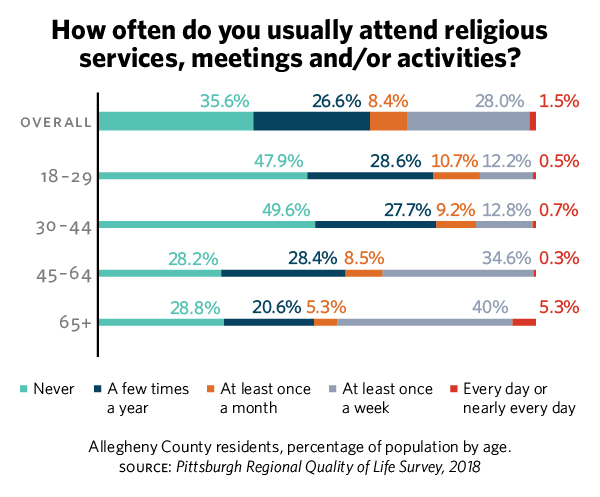Who Is Most Affected When Places of Worship Close?

The closing of churches, synagogues and other places of worship during the COVID-19 pandemic affects the practices of nearly 2 in 3 Allegheny County residents. But the hardship is not evenly shared.
Hardest hit are residents who regularly attend religious services, such as those who attend every day or at least once a week. In Allegheny County, that’s less than 30 percent of residents, according to 2018 data from a survey by Pittsburgh Today and the University Center of Social and Urban Research at the University of Pittsburgh.
Nearly 35 percent attend once a month or a “few times a year.” And 36 percent of residents say they never attend religious services.
More than 59 percent of county residents overall describe themselves as “very” or “moderately” spiritual. Another 24 percent describe themselves as “slightly” spiritual, while 17 percent are not spiritual at all.
But differences in worship practices and spirituality can be stark, depending on the age or race of residents.

Unequal hardship
Older Allegheny County residents are the most likely to have their worship practices disrupted by social distancing orders intended to control the spread of COVID-19.
More than 45 percent of adults over 65 attend church at least once a week compared to less than 13 percent of those aged 18–29. Even those older adults who don’t attend regularly, attest to some degree of spirituality. Only 11.5 percent of adults over 65 claimed they were not spiritual at all.
Young people are more likely to describe themselves as not spiritual at all or to choose “none” as a religious preference. In Allegheny County, 53 percent of residents 18–29 years old list “none” as a religious preference, the most of any age group. And 32 percent say they’re not spiritual at all.
Nationally, 22 percent of Americans aged 22–37 years say they never attend religious services, according to a 2018 Pew Research Center study. Pew research suggests the United States saw a surge in who describes themselves as atheist, agnostic or “nothing in particular” from 17 percent in 2009 to 26 percent in 2019.
Closing places of worship during the pandemic also disproportionately disrupts the practices of Allegheny County’s African American residents. Some 37 percent of African Americans say they attend religious services every day or at least once a week compared to 28 percent of residents of other races. And the overwhelming majority of African Americans consider themselves spiritual—only 5 percent of African Americans in the county consider themselves not spiritual at all.





